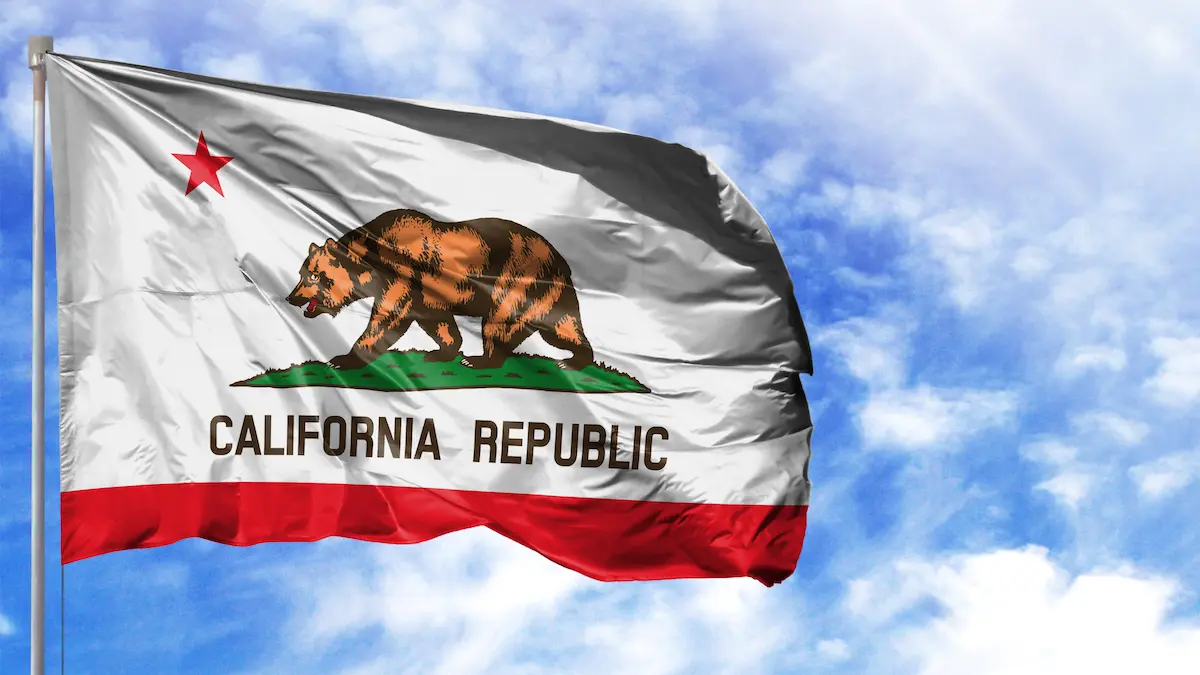Kalshi Goes Head-to-Head with Maryland as the High-Stakes Legal Showdown Over Prediction Markets Intensifies
In a significant escalation of the ongoing legal and regulatory battle between state authorities and prediction market operators, Kalshi, a New York-based financial technology company, has filed a lawsuit against Maryland’s Lottery and Gaming Regulator. The lawsuit, lodged in the United States District Court for the District of Maryland Northern Division, challenges the Maryland Control Commissioner’s (MLGCC) cease-and-desist order issued earlier this month. Kalshi contends that the MLGCC’s actions are unconstitutional and threaten to disrupt its operations in Maryland.
The Growth of Prediction Markets and the Brewing Legal Storm
Prediction markets, once a quirky academic concept, have evolved into a powerful financial tool at the intersection of data science, economics, and public sentiment. Born in the early 1980s as small-scale experiments within university economics departments, these markets were designed to test whether the “wisdom of crowds” could more accurately forecast future events than traditional polling or expert opinion. And often, they could.
By the early 2000s, sites like Intrade and the Iowa Electronic Markets began gaining attention for their uncanny ability to predict election outcomes and market trends. These early platforms allowed users to buy and sell contracts based on whether events would happen, e.g., “Will Candidate X win the presidency?” The value of a contract reflected the perceived probability of the outcome, turning speculation into price-driven predictions.
Fast forward to the 2020s, prediction markets have grown more sophisticated and federally regulated. Enter Kalshi, a tech-forward, CFTC-regulated exchange based in New York. Kalshi’s innovation? Taking prediction markets mainstream, with contracts on everything from inflation data releases to the number of hurricanes in a season. More recently, Kalshi began offering sports-related contracts, essentially letting users “predict” outcomes in the sports world. This expansion, however, struck a nerve with state gambling regulators, reigniting an age-old debate: when does predicting the future become betting on it?
Maryland Orders Kalshi to Halt Operations
On April 7, 2025, the MLGCC issued a cease-and-desist order to Kalshi, alleging that the company was operating in Maryland without the necessary sports wagering license. The order stated that Kalshi was “offering and conducting what is, in fact, wagering on sporting events,” and that it was “not otherwise authorized under Maryland law.” The MLGCC’s director, John Martin, emphasized that Kalshi’s activities violated state regulations governing sports betting.
This action by Maryland follows similar moves by other states. At least six states have issued cease-and-desist orders to Kalshi, including Nevada and New Jersey. In response, Kalshi has filed lawsuits in these states, arguing that its operations fall under the jurisdiction of the Commodity Futures Trading Commission (CFTC), the federal agency responsible for regulating futures markets.
Kalshi Fights Back: The Legal Battle That Could Redefine Regulation
At the heart of Kalshi’s legal offensive against the Maryland Lottery and Gaming Control Commission (MLGCC) is a staunch defense of federal supremacy in the regulation of financial markets. Kalshi contends that its event contracts, including those related to sports, fall squarely under the regulatory umbrella of the Commodity Futures Trading Commission (CFTC), a federal agency set up to oversee derivatives and futures markets. According to Kalshi, these contracts are not traditional sports wagers but rather structured financial products legally classified as “event contracts” making them fundamentally distinct from gambling under state law.
Kalshi’s lawsuit argues that Maryland is overstepping its legal bounds by trying to regulate what is a federally sanctioned trading activity. The company warns that allowing state-level agencies to impose their own restrictions would fracture the regulatory landscape, creating a chaotic “patchwork” of conflicting rules across the country. This, Kalshi claims, not only defies the intent of Congress, which gave the CFTC exclusive authority, but also threatens to stifle innovation in the nascent prediction market space.
Additionally, Kalshi warns of “irreparable harm” to its operations, highlighting Maryland as a vital growth market. To mitigate damage while litigation proceeds, the company is pursuing a temporary restraining order and preliminary injunction to block the enforcement of the cease-and-desist order.
Drawing the Battle Lines – Federal Preemption and Kalshi’s Stand
Central to Kalshi’s legal strategy is the long-established legal doctrine of federal preemption, the principle that federal law takes precedence in the event of a conflict between Federal Law and State Law. Kalshi contends that its operations fall squarely under the jurisdiction of the Commodity Futures Trading Commission (CFTC), a federal agency established by Congress to regulate commodity futures and derivatives markets, including event contracts. In Kalshi’s view, any attempt by individual states to assert authority over these federally regulated contracts directly contradicts federal law and undermines the unified legal framework Congress intended when it granted the CFTC exclusive regulatory power.
To bolster its case, Kalshi is drawing on a significant legal victory in Nevada. There, a federal judge recently issued a preliminary injunction in Kalshi’s favor, explicitly stating that Nevada’s attempt to regulate the company’s event contracts was preempted by federal law. This ruling serves as a key precedent for Kalshi’s argument in Maryland, reinforcing the notion that state regulators cannot interfere in markets under exclusive federal oversight.
Kalshi’s legal team argues that allowing individual states to enforce their own rules would lead to a fragmented and chaotic regulatory environment. Each state could potentially interpret the legality of event contracts differently, forcing companies like Kalshi to navigate a labyrinth of conflicting rules. This, they claim, would not only stifle innovation but also prevent the development of a cohesive, nationwide market for event-based financial products. In their view, only a consistent federal framework can provide the stability and clarity the emerging prediction industry needs to thrive.
The Domino Effect: What Kalshi’s Legal Battle Means for the Industry
The stakes in Kalshi’s legal battle with the Maryland Lottery and Gaming Control Commission (MLGCC) stretch far beyond the borders of Maryland. At its core, the case could set a legal precedent that defines the future of prediction markets in the United States. A ruling in favor of Kalshi would solidify the federal government’s, specifically the Commodity Futures Trading Commission’s, exclusive jurisdiction over event contracts, shielding such platforms from state-level interference. This would not only validate Kalshi’s business model but also unlock broader opportunities for other fintech innovators to enter the prediction market space without the looming threat of state enforcement.
Such a victory could trigger a wave of investment, expansion, and product innovation within the industry, giving rise to a national, standardized framework for trading on future events, everything from economic data releases to weather patterns and sports results. On the flip side, a win for the MLGCC could embolden other state regulators to treat these platforms as unlicensed gambling operators, tightening restrictions and muddying the legal waters.
This would likely result in a fragmented regulatory landscape, with prediction markets having to comply with a maze of inconsistent state laws. The outcome, whatever it may be, will shape the legal and operational future of an industry still finding its footing.
The CFTC’s Influence on the Fate of Prediction Markets
The Commodity Futures Trading Commission (CFTC) plays a pivotal role in the regulation of prediction markets, a role that lies at the center of Kalshi’s legal argument and the broader regulatory conflict. As the federal agency responsible for overseeing derivatives, futures, and options markets, the CFTC has long held jurisdiction over financial instruments tied to commodities, interest rates, weather patterns, and macroeconomic indicators. Kalshi, as a CFTC-regulated Designated Contract Market (DCM), contends that its event contracts, essentially wagers on real-world occurrences, are functionally no different from traditional futures products and should remain under the same regulatory umbrella.
Kalshi and similar platforms argue that their operations do not amount to gambling but instead constitute a new form of financial speculation designed to provide insight, manage risk, and facilitate the exchange of information. In this view, betting on whether the Federal Reserve will raise interest rates is not fundamentally different from betting on whether inflation will exceed a certain threshold, both are tools to hedge risk and forecast the future.
However, the CFTC’s authority over event contracts has not gone unchallenged. In 2023, the agency controversially attempted to ban election-related event contracts, claiming they were tantamount to illegal gambling and posed a threat to democratic integrity. This move sparked backlash across the industry and triggered a high-profile legal battle. A federal judge ultimately ruled that the CFTC had exceeded its authority, reaffirming that such contracts do fall within its regulatory scope.
Despite this ruling, state regulators like the Maryland Lottery and Gaming Control Commission (MLGCC) continue to assert jurisdiction over event contracts, particularly when the contracts touch on sports or elections, areas traditionally associated with gambling. This persistent tension highlights the unresolved conflict between federal oversight and state-level enforcement, a conflict that Kalshi’s lawsuit may soon bring to a head.
Industry Leaders and Regulators React
The legal skirmish between Kalshi and the Maryland Lottery and Gaming Control Commission has sparked intense interest from a wide array of stakeholders, each with deeply vested interests in the outcome. On one side of the divide are the innovators, financial technology firms, market analysts, libertarian-leaning policy groups, and digital asset proponents, who view prediction markets as a natural evolution in financial instruments. These stakeholders have largely rallied behind Kalshi, asserting that a standardized, federally administered regulatory framework is crucial to the long-term growth, safety, and functionality of the industry.
Supporters argue that prediction markets serve a valuable public purpose by aggregating collective intelligence. In their view, these platforms can produce highly accurate forecasts on everything from monetary policy to climate outcomes, insights that are useful for investors, researchers, policymakers, and businesses. To unlock this potential, they argue, prediction markets must operate under clear, uniform rules enforced at the federal level, not a chaotic tangle of state-by-state regulations.
However, not everyone shares this enthusiasm. Proponents of state-level regulation, ranging from state gaming commissions and legislators to anti-gambling advocacy groups, believe firmly in local control. They argue that states have a constitutional right and a proven track record of regulating gambling and games of chance within their own borders. These stakeholders are concerned that event contracts, especially those tied to elections or sports, dangerously blur the lines between financial speculation and betting. From their perspective, prediction markets risk becoming Trojan horses for unlicensed gambling operations that could exploit loopholes in federal oversight.
Consumer protection is a key concern among this group. State regulators argue that they are better equipped to enforce responsible gaming standards, combat fraud, and respond to local issues than a distant federal agency. To them, Kalshi’s model skirts these safeguards.
The court’s decision in this case could dramatically shift the regulatory tide. A win for Kalshi would fuel momentum for federal preemption and national expansion. A win for Maryland, however, could trigger increased scrutiny and enforcement from state agencies across the U.S., challenging the very viability of the prediction market model.
How This Case Could Redefine the Future of the Industry
As Kalshi’s lawsuit against the Maryland Lottery and Gaming Control Commission winds its way through the courts, the broader prediction market industry finds itself at a critical inflection point. The implications of this legal battle stretch far beyond the state of Maryland; what’s at stake is not just Kalshi’s operational freedom but the very foundation upon which event-based financial markets are built in the United States.
Industry players, regulators, investors, and legal experts are all watching closely. A favorable ruling for Kalshi could serve as a judicial endorsement of federal supremacy in the oversight of event contracts, especially those regulated by the Commodity Futures Trading Commission (CFTC). Such an outcome would provide legal clarity and likely embolden other market entrants, allowing the sector to scale confidently across the country without the looming threat of state-level enforcement actions.
On the flip side, an unfavorable decision could significantly slow the momentum of prediction markets. It would signal to other states that they are well within their rights to intervene, even if a company is operating under federal oversight. For Kalshi, this could mean retreating from key markets, reworking contract offerings to appease regulators, or even abandoning certain sectors, such as sports-related predictions.
The court’s forthcoming decision will serve as a legal litmus test for how America will govern emerging fintech platforms that don’t fit neatly into legacy regulatory boxes. It may ultimately determine whether innovation leads or follows in the ever-evolving world of finance and forecasting.
Final Word: The Lasting Impact of Kalshi’s Legal Battle
Kalshi’s lawsuit against the Maryland Lottery and Gaming Control Commission represents a critical turning point in the ongoing conflict between state regulators and prediction market operators. The central issue at hand is determining whether state governments or federal agencies, such as the Commodity Futures Trading Commission, have the authority to regulate event contracts.
As the legal proceedings unfold, the outcome is expected to have far-reaching implications for the future of prediction markets across the United States. With stakeholders from various sectors, including fintech, law, and gaming, closely monitoring the case, the decision could establish a significant precedent. It may either reinforce the federal government’s control over these emerging financial markets or empower state regulators to assert their authority. In either case, the ruling will shape the regulatory landscape, which will have a lasting impact on predictions markets well into the future.

 Companies
Companies 





